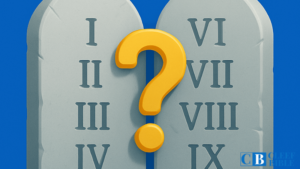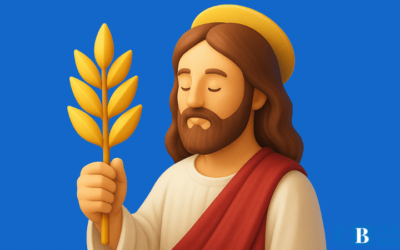What if you were told that God still speaks… but many don’t want to listen?
Who are those who dare to say what no one wants to hear, but what everyone needs?
Can a single voice change the destiny of a nation?
Since ancient times, prophets have been more than messengers: they have been witnesses to God's heart, spokesmen for his will, and sentinels of the spirit of his people.
But what does it really mean to be a prophet according to the Bible?
Is it the same as predicting the future?
Are there prophets today?
In this article, you'll discover who the prophets were, what they were called, what their role was, how to identify them, and the relevance of their message for us today.
Prepare for a journey that will not only teach you biblical history, but also challenge you spiritually.
Because understanding the prophet… is learning to listen to God.
What is a prophet according to the Scriptures?
A prophet in the Bible is not simply someone who predicts the future.
He is a direct spokesman for God, someone who conveys his will, message, and judgment to people, whether concerning present or future matters.
- Spokesman for God, not for himself:
The prophet spoke with divine authority.
His message began with expressions like, “Thus says the Lord,” which indicated that it was not a personal opinion or human interpretation.
- Revelation Channel:
God used prophets to communicate warnings, comfort, direction, judgments, or promises.
This could happen through visions, dreams, audible words, or inner inspiration.
- Key figure in the spiritual history of Israel:
From Moses to John the Baptist, prophets were central to the history of redemption.
They were called in times of crisis to bring the people back to the covenant with God.
Difference between prophet and fortune teller
Although many people confuse them, the difference between a prophet and a fortune teller is clear and crucial in the Bible.
Here I explain why they are not the same:
- Origin of the message:
The prophet speaks what God reveals to him.
The fortune teller uses occult methods or human practices (such as sorcery, astrology, or spells) to “discover” the future.
The latter is prohibited in Scripture (Deuteronomy 18:10–12).
- Spiritual Purpose:
The prophet seeks for the people to repent, trust in God, and live in obedience.
The fortune teller appeals to human curiosity or the desire for control over the future, without transformation of the heart.
- Message result:
Biblical prophecy confronts sin and points to the glory of God.
Divination promotes spiritual confusion, dependence on the occult, and often, manipulation.
- God's approval:
True prophets were chosen by God and received his support.
Diviners were condemned and associated with pagan practices that dishonored the Creator.
Why did God raise up prophets among the people of Israel?
God did not send prophets by chance or as a tradition.
Each prophet had a specific mission for the historical and spiritual moment in which the people lived.
Here I explain the main purposes:
- Correcting spiritual deviation:
When the people strayed from the commandments, God raised up prophets to call them to repentance.
Example: Isaiah, Jeremiah, and Amos confronted idolatry, injustice, and moral corruption.
- Confirm the agreement and its conditions:
The prophets reminded the people of the promises and warnings of the covenant with God.
They were a kind of national spiritual conscience.
- Announce judgment or restoration:
Depending on the people's response, the prophet could announce impending judgment or a promise of future restoration.
His messages were direct, clear and full of authority.
- Prepare the way for the Messiah:
Many prophets spoke of the future Savior who would bring justice, redemption, and peace.
Isaiah, for example, is known for being the prophet who spoke most about the promised Messiah.
- Be light in times of darkness:
When truth was scarce and leaders were corrupt, the prophet was a lone voice boldly proclaiming the Word.
They did not seek human approval, but fidelity to the God who sent them.
The figure of the prophet in the Bible is neither mystical nor symbolic: it is deeply practical and necessary.
His voice was (and still is) a channel of divine direction in the midst of human confusion.
The prophetic call in the Bible
God did not choose prophets by chance or human merit, but rather by a direct, profound, and often supernatural calling.
Here I explain how that call came about and what implications it had for those who received it:
How God called his prophets
The prophetic call was a clear and personal divine intervention.
It was not self-assigned, nor an honorary title, but a heavenly mandate.
- Divine initiative:
God took the initiative and chose the person, often before the person was considered capable.
“Before I formed you in the womb I knew you…” (Jeremiah 1:5). - Spiritual Confirmation:
The call included signs, visions, audible voice or a strong spiritual impulse accompanied by clarity in the message. - Initial resistance:
Many prophets felt unworthy or incapable.
But God affirmed them, empowered them, and supported them with power.
Biblical examples of supernatural callings
The Bible records various prophetic calls, each with details that reveal the character and glory of God.
- Moses (Exodus 3):
Called through a burning bush that was not consumed.
God sent him to free Israel with supernatural signs. - Isaiah (Isaiah 6):
He had a vision of the throne of God.
After confessing his impurity, he was purified and commissioned with the phrase: “Whom shall I send?” - Jeremiah (Jeremiah 1):
God chose him from the womb.
He protested about his youth, but God promised to be with him and put His words in his mouth. - Ezekiel (Ezekiel 2):
He received extraordinary visions and was sent to a rebellious people with a powerful message.
These calls demonstrate that prophetic ministry begins with a powerful and unforgettable experience with God.
The obedience and sacrifice that being a prophet entailed
Accepting the prophetic call was neither easy nor comfortable.
True prophets faced constant opposition, loneliness, and danger.
- Rejection and persecution:
The prophetic message was often unpopular.
The prophets were rejected by their own people, insulted and even persecuted. - Personal resignation:
Many had to give up a common life, stability and personal relationships.
God's call was more important than his human plans. - Unconditional obedience:
Although the price was high, the true prophets obeyed.
His faithfulness did not depend on human success, but on his commitment to the voice of God.
Responding to the prophetic call was saying yes to God's will, even if it cost everything.
It was living to please only one: the Lord.
Characteristics of a true prophet in the Bible
Distinguishing a true prophet from a false one is not a matter of fame, but of spiritual evidence.
Here I explain the biblical marks of an authentic prophet:
They speak in the name of God, not for their own interest.
The prophet does not seek prominence or personal benefit.
Their only motivation is to obey God and speak what He has said.
- They do not manipulate the message:
They do not soften the truth to please.
They transmit what God says, even if it hurts. - They do not seek recognition:
Many prefer anonymity to public exposure.
The glory is for God, not for them. - They are servants, not celebrities:
His authority does not come from a title, but from the backing of God.
They live in holiness and fear of God
The life of the prophet is marked by purity, reverence and constant communion with the Lord.
- Reverent fear:
They recognize the holiness of God and do not take his calling lightly.
They know that a poorly conveyed message can have eternal consequences. - Personal integrity:
What they preach they live.
His private life supports his public message. - Separation from the world:
They live apart from sin and influences that corrupt the truth.
They suffer rejection, but remain faithful
Rejection doesn't stop them or make them give up.
His loyalty is unwavering because his identity does not depend on human applause.
- Rejected by authorities and crowds:
They were often imprisoned, exiled or ignored.
But they kept talking. - Consoled by God himself:
Even though they felt alone, they knew that God was with them. - They persevered to the end:
Many prophets died without seeing their words fulfilled, but they trusted until their last day.
His messages always align with the Word
A true prophet never contradicts what God has already revealed in the Scriptures.
- Consistency with the law and covenants:
His message reinforces, confirms or expands the truths already revealed by God. - They do not promote new or strange doctrines:
They do not add confusion or invent new paths.
They direct the people to God, not to themselves. - They always glorify Christ:
Every authentic prophetic message points to the centrality of the Messiah, his redemptive work and his eternal lordship.
These characteristics not only identify the prophets of yesterday, but also help us discern in the present.
Because even though methods change, God continues to speak… and continues to call us to live in truth.
Main functions of the prophet in the Bible
The prophet was not simply a preacher or a seer.
He had a set of spiritual functions that made him an essential figure in the history of the people of God.
Here I explain which were the most important ones:
Correct and confront the sin of the people
One of the central tasks of the prophet was to denounce sin, not to condemn, but to provoke genuine repentance.
- Expose idolatry:
The prophets confronted false worship and mixing with pagan religions.
They did not tolerate altars or images that usurped the place of God. - Report injustice:
Many prophets spoke out in defense of the poor, widows, orphans, and the oppressed.
Lack of social justice was considered a spiritual transgression. - Call to repentance:
The confrontation was direct, but always with an invitation to return to the Lord.
The message was clear: repent and live.
Announcing judgments, restoration, and future promises
The prophet warned of the consequences of disobedience, but also offered hope to the contrite heart.
- Impending trials:
They announced wars, exiles, diseases or destruction as a result of collective sin. - Promises of restoration:
After the judgment, they announced the return, the healing of the land, the restoration of the temple or the people. - Messianic prophecies:
They anticipated the arrival of a just King, a suffering Servant, a Savior who would bring eternal peace and justice.
Guiding the people in times of spiritual crisis
When priests failed and leaders became corrupt, God raised up prophets to light the way.
- Giving spiritual direction:
In times of confusion, the prophet spoke what God thought, not what people wanted to hear. - Advise the kings:
Many prophets acted as spiritual advisors, guiding key decisions with divine word. - Strengthen the faith of the people:
In the midst of fear or exile, they remembered that God was still in control and had not forgotten his covenant.
Reveal God's will and redemptive plan
The prophets were bearers of the broader divine vision: the salvation of humanity through a Redeemer.
- Explain the heart of God:
They not only gave messages, they also showed the character, longings, and faithfulness of God. - Prepare the way for Christ:
His messages built the spiritual framework that would find fulfillment in Jesus.
Isaiah 53, Micah 5:2, Zechariah 9:9 and many others are testimony to this. - Invite all peoples:
They were not speaking only for Israel.
The prophets also announced salvation to the Gentiles, thus fulfilling the universal plan of redemption.
These roles make the prophet an essential figure, not only in biblical history, but also as an inspiration for those who wish to speak with truth, justice, and compassion today.
Classification of Biblical Prophets
To better understand the place of each prophet in the biblical narrative, it is helpful to know how they are grouped.
Here I explain the main classifications used by scholars and theologians:
Major Prophets and Minor Prophets
This classification does not refer to importance, but to the extent of the writings they left behind.
- Major Prophets:
They include Isaiah, Jeremiah, Ezekiel, and Daniel.
His books are longer and address both historical aspects and future visions in depth. - Minor Prophets:
There are twelve shorter books, from Hosea to Malachi.
Although brief, his messages are powerful, direct and full of teaching. - Equal prophetic authority:
Both the major and minor verses were inspired by God and are a fundamental part of the biblical canon.
Pre- and post-exilic prophets
Another way to classify prophets is by the historical period in which they exercised their ministry, especially in relation to the Babylonian exile.
- Pre-exilic prophets:
They include Isaiah, Hosea, Amos, Micah, among others.
His message was focused on warning the people before they fell into judgment. - Prophets during the exile:
Example: Ezekiel and Daniel.
They encouraged the people in the midst of suffering, confirmed the reasons for the judgment, and pointed to future hope. - Post-exilic prophets:
Like Haggai, Zechariah and Malachi.
They called for the physical and spiritual reconstruction of the nation after the return.
Oral prophets vs. writing prophets
Not all prophets left a written book, but their impact was equally significant.
- Oral Prophets:
Like Elijah and Elisha, whose messages were recorded by others.
They acted with miracles, signs, and direct confrontation, leaving no books of their own. - Writing prophets:
They are those who did write the books that today form part of the Old Testament.
His messages were preserved and passed on as a prophetic word to all generations. - Complementarity in their roles:
Both types were used by God for different contexts and for different purposes.
But they all shared the same source: the voice of the Most High.
Understanding these classifications not only better organizes biblical study, but also allows us to appreciate the richness, diversity, and depth of the prophetic ministry in salvation history.
Prominent Prophets of the Old Testament
Throughout the Old Testament, God raised up men with a powerful prophetic anointing to speak at critical moments in Israel's history.
Here I explain who some of the most representative prophets were and what makes them unique:
Isaiah – The Messianic Prophet par excellence
Isaiah is one of the most influential and quoted prophets in the entire biblical canon.
His message combines judgment, hope, and revelation of the coming Messiah.
- Vision of holiness:
Isaiah had a vision of the heavenly throne that transformed his life (Isaiah 6).
He was purified by God and commissioned to proclaim his word. - Messages of Judgment and Restoration:
He announced punishment for Judah's rebellion, but also promised redemption for the faithful remnant. - Key Messianic Prophecies:
He foretold the virgin birth (7:14), the ministry of the Suffering Servant (53), and the eternal rule of the Prince of Peace (9:6). - His legacy:
He is called “the fifth evangelist” for his detailed revelation of the Messiah.
Jeremiah – The prophet of lament and hope
Jeremiah prophesied in the days before the fall of Jerusalem, with a broken but unwavering voice.
- Called from his youth:
He was chosen before he was born (Jeremiah 1:5) and sent to confront false kings, priests, and prophets. - Rejected by his people:
He suffered persecution, was imprisoned and branded a traitor for announcing the destruction of Jerusalem. - Message of hope:
Despite the pain, he announced a new covenant in which God would write his law on hearts (Jeremiah 31:31–34). - His spiritual sensitivity:
He is known as “the weeping prophet,” not out of weakness, but out of deep compassion.
Ezekiel – The prophet of supernatural visions
Ezekiel was called during the Babylonian exile, and received astonishing revelations that combined symbolism, prophetic action, and divine glory.
- Extraordinary visions:
From wheels full of eyes to the throne of God above the firmament (Ezekiel 1), his prophetic experience was visual and impactful. - Symbolic actions:
God asked him to act on certain messages: lie on one side, remain silent, not mourn the death of his wife.
Everything had a deep spiritual meaning. - Restoration of Israel:
He foretold the return of the people, the rebuilding of the temple, and the spiritual revival of the valley of dry bones (Ezekiel 37). - Eschatological perspective:
He anticipated a new temple and a future glory that transcends his time.
Elijah and Elisha – Prophets of power and miracles
Both prophets ministered in the Northern Kingdom and were noted for their confrontation with idolatry and their supernatural demonstration of God's power.
- Elijah – Confrontation with the false gods:
He challenged the prophets of Baal on Mount Carmel and called down fire from heaven (1 Kings 18).
He was fed by ravens, raised the dead, and was taken to heaven in a whirlwind. - Elisha – Heir to the prophetic mantle:
He received a double portion of Elijah's spirit and performed numerous miracles: he healed bitter waters, multiplied oil, and resurrected the Shunammite's son. - Direct action prophets:
Both prophets left no written books, but their lives were recorded in historical books as a testament to their impact. - His legacy:
They represent visible, powerful and courageous prophetic authority in the face of spiritual corruption.
Prophets in the New Testament
The prophetic ministry does not end in the Old Testament.
God continued to reveal his will through prophetic voices in the days of Jesus and the early church.
Here I explain who they were and what their role was:
John the Baptist – The bridge between the two covenants
John is considered the last prophet of the Old Testament and the first of the New Testament because of his transitional role.
- Called to prepare the way of the Lord:
He fulfilled Isaiah 40:3 as “a voice crying in the wilderness.”
His message was one of repentance and spiritual purification. - Radical prophetic style:
Dressed in camel skin and fed on locusts and wild honey, his life confronted the religious system. - He baptized Jesus:
He witnessed the revelation of the Son of God in the Jordan.
He stated with authority: “Behold the Lamb of God.” - He died for denouncing sin:
He was beheaded for publicly denouncing Herod's adultery.
A prophet until his last breath.
Jesus as the promised prophet (Deuteronomy 18:18)
Although he is much more than a prophet, Jesus also fulfilled a prophetic function during his earthly ministry.
- He prophesied with divine authority:
He spoke not only in the name of God, but as God himself incarnate. - He denounced religious hypocrisy:
He confronted Pharisees, scribes, and merchants in the temple, calling them to repentance. - He announced his death and resurrection:
He predicted his passion, his resurrection on the third day, and the events of the end of time. - Complete fulfillment of the prophecy:
All the Law and the prophets pointed to Him.
Jesus is the fullness of God's prophetic message.
The Prophets in the Early Church (Acts and Pauline Letters)
The prophetic gift continued to be active in the Christian community of the first century.
- Agabus and other prophets (Acts 11:28; 21:10):
They prophesied about future events and strengthened the church with inspired words. - Recognized Ministry (Ephesians 4:11):
Paul states that God gave the church apostles, prophets, evangelists, pastors and teachers. - Regulation of the gift (1 Corinthians 14):
The prophecies were to be ordered, judged, and submitted to the direction of the Spirit. - Edifying purpose:
The prophet in the New Testament not only announced, but also edified, comforted, and exhorted the body of Christ.
The New Testament prophets were not an exception, but a continuation of God's pattern to guide, warn, and edify His people with truth.
The prophetic voice is still present… and still necessary.
How the authenticity of a prophet was tested
Since many claimed to speak for God, it was critical to discern who had truly been sent by Him.
The Bible establishes clear and objective criteria for testing the truthfulness of a prophet.
Here I explain how its authenticity was validated:
His prophecies were fulfilled exactly
The literal and punctual fulfillment of a prophecy was the first evidence that the message came from God.
- Compliance without error or adjustment:
According to Deuteronomy 18:22, if a prophecy was not fulfilled, it was a sign that the message was not from the Lord.
There was no room for error. - Defined or revealed term:
Many times the message included a timeline or an observable event.
This allowed the people to confirm the divine source. - Collective confirmation:
When the fulfillment was visible to all, the prophet's credibility in the community was strengthened.
His message glorified only God
The true prophet aimed to exalt the Lord, not himself or other idols or powers.
- Faithfulness to the character of God:
The message had to be aligned with the holiness, justice, mercy and truth of God.
He could not contradict his nature. - He did not divert worship:
Any word that led to following other gods, even if fulfilled, was false (Deuteronomy 13:1–3).
God also tested the faithfulness of the people through this filter. - Honor the Name of God:
The message was to provoke repentance, obedience and reverence for the Lord.
The prophet's ego was never the center.
They did not promote sin or idolatry
The true prophet never justified or tolerated sin.
His message called for holiness and purity of worship.
- Rejection of all forms of impurity:
Idolatry, injustice and immorality were confronted with force.
The prophet made no concessions for popularity. - Consistency with the Law of God:
If the message contradicts the revealed commandments, it does not come from God.
The prophet never minimizes sin or relativizes the truth. - Promote transformation, not debauchery:
The true prophetic message leads to genuine life change, not to a superficial or comfortable spirituality.
These tests not only protected people in biblical times, but remain essential tools of spiritual discernment today.
Biblical warnings about false prophets
The Bible not only validates true prophets, it also seriously warns against false ones.
Here I explain their characteristics, the consequences of following them, and how to identify them today:
Characteristics of false prophets in the Bible
These characters appeared within the very people of God, appearing pietistic, but concealing corruption.
- They speak what the people want to hear:
They offer messages of peace, prosperity and well-being without confronting sin.
“They healed the wound of the people with lightness” (Jeremiah 6:14). - They take advantage of God's name:
They say “the Lord told me” when God has not spoken to them.
They act as spokespersons without having been sent (Jeremiah 23:21). - They seek personal gain:
Many false prophets seek money, power or influence.
They do not serve God, but their own interests.
Spiritual and social consequences of listening to them
Following a false prophet can lead to devastating consequences.
- Spiritual deviation:
The people are led to idolatry, sin or a false sense of security.
This provokes divine judgment. - Loss of discernment:
Confusion reigns when people lose the ability to distinguish between truth and deception. - National or personal destruction:
In many cases, kings and nations fell by following false advice (1 Kings 22).
How to identify them today according to biblical principles
Although the context has changed, the essence of discernment remains valid.
- Evaluate the fruit of your life (Matthew 7:15–20):
Does your character reflect Christ? Is your testimony whole?
A good tree bears good fruit. - Examine his message with the Word:
Are your teachings aligned with Scripture?
The message must confirm what God has already said. - Look at who they glorify:
Do they point to God or to themselves?
The true prophet exalts Christ, not his personal ministry. - Ask the Holy Spirit for discernment:
Prayer, wisdom, and faith community are essential tools for avoiding deception.
Biblical warnings are not intended to generate fear, but rather to foster spiritual vigilance.
Because where there is truth, there will always be imitation.
And where there is a call from God, there will also be a trap to divert it.
Are there prophets today?
The figure of the prophet did not disappear with the Old Testament.
However, their role and recognition vary according to the theological understanding of each Christian tradition.
Here I explain how this function is understood today, and how we should discern its presence and message:
Positions within different Christian denominations
Christian churches have diverse positions regarding the continuity of the prophetic office.
- Pentecostal and charismatic churches:
They affirm that the prophetic ministry is still valid.
They believe that God raises up modern prophets to edify, exhort, and comfort the church, according to 1 Corinthians 14:3.
Their messages are expected to be evaluated by spiritual leaders and the community. - Historic Churches (Baptist, Reformed, Presbyterian):
Some teach that the office of prophet ceased with the apostolic age, although they recognize that the Holy Spirit can guide and inspire.
They do not deny divine guidance, but they do not recognize prophets with the same authority as the biblical ones. - Catholic perspective:
The term “prophet” is not used for a specific ministry.
However, it is recognized that certain saints and leaders have received prophetic messages or warnings under the discernment of the Church. - Coincidences:
All currents agree that any manifestation must be subject to the authority of the Scriptures and the guidance of the Holy Spirit.
The gift of prophecy in the New Testament
The Bible teaches that prophecy is a gift of the Spirit for the common good.
- A current gift:
According to 1 Corinthians 12:10 and Romans 12:6, the gift of prophecy is part of the gifts given to the church.
Not all are prophets, but some are called to exercise this gift responsibly. - Purpose of the gift:
It is not to predict the future out of curiosity, but to:
- Build the church
- Confirm decisions
- Exhort to repentance
- Comfort the broken heart
- Subject to proof:
Every prophecy must be evaluated (1 Thessalonians 5:20–21).
It is not accepted as infallible, but rather as subject to biblical and community discernment.
Spiritual discernment versus modern revelations
Not all “prophecy” comes from God.
Therefore, spiritual discernment is vital to avoid falling into deception.
- Evaluate the content:
Does it point to Christ? Does it reflect biblical truth? Does it produce peace and conviction of sin? - Evaluate the messenger:
Do you have integrity? Are you subject to spiritual leadership? Are you known for your humility and spiritual fruitfulness? - Confirm with Scripture and prayer:
God will never speak in contradiction to His Word.
What the Spirit says will always be confirmed by the written Word. - Seek wise advice:
The mature community of believers can help discern and evaluate prophetic revelations with wisdom and humility.
The fact that counterfeits exist does not invalidate the authentic.
God continues to speak… but he expects a people who know how to listen with discernment, not with superficial emotion.
Personal Application: How to Respond to the Prophetic Voice
Listening to a prophetic message should not be a passive experience.
God expects a concrete, mature and transformative response.
Here I explain how to receive and apply that word to your life:
Listen with humility and willingness to change
The first step to receiving a prophetic message is to open your heart with reverence.
- Sincere humility:
It's not about whether I like it or not, but about being willing to listen to what God wants to say, even if it's confronting. - Desire for correction:
Prophecy does not always come to applaud, but to adjust the course.
Whoever listens with humility will grow in wisdom. - Servant Pose:
The obedient heart says like Samuel: “Speak, Lord, for your servant is listening.”
Confirm with the Word and prayer
Every message must be spiritually examined before being applied.
- Compare with Scripture:
Is the message in line with the Word of God?
If it contradicts the Bible, it must be rejected. - Sincere prayer:
Ask the Holy Spirit to confirm, rebuke, and clarify the message.
He is the one who guides to all truth. - Wait in wisdom:
Don't make impulsive decisions.
Wait for confirmation and inner peace before acting.
Walk in obedience and faith
Once confirmed, the prophetic message requires an active and persevering response.
- Immediate obedience:
Do not postpone what God has revealed to you.
Act with diligence and reverent fear. - Faith in the midst of uncertainty:
Prophecy often points to processes, not immediate results.
Trust that God will fulfill his word in his time. - Continued gratitude:
Thank God for speaking into your life.
Many are spiritually deaf; if He speaks to you, it is because He loves you deeply.
Responding correctly to the prophetic voice can change your spiritual destiny.
God's message is an open door... but only those who enter into obedience know the power of its fulfillment.
Recommended books about the prophet in the Bible
Studying the figure of the prophet in the Bible requires not only reading the Scriptures, but also turning to reliable works that broaden our theological, spiritual, and practical understanding.
Here are three recommended books, available on Amazon, that offer enriching perspectives for those who wish to delve deeper into this topic:
“Prophets: Voices for Our Time” – RC Sproul (Amazon)
A clear and profoundly biblical work that demystifies the prophetic figure, applying its relevance to the modern world.
- Analysis of the call, message and context of the prophets.
- Practical applications for believers today.
- Ideal for study groups, preachers and spiritual leaders.
“The Voice of the Prophets” – Abraham Heschel (Amazon)
Considered one of the most influential texts on prophetic thought from a profound Jewish perspective.
- Explores the psychology, theology, and passion of biblical prophets.
- It reflects how the prophet felt God's pain and joy as a sacred burden.
- Written with academic depth, but accessible to the committed reader.
“How to Hear God’s Voice” – Mark Batterson (Amazon)
Although not focused exclusively on prophets, this book is valuable for those who wish to develop a spiritual life sensitive to the voice of God.
- It teaches how to discern the divine voice among so many modern distractions.
- Provides practical keys to strengthening prayer, fasting, and obedience.
- Perfect for entrepreneurs, leaders, and Christians seeking clear direction from heaven.
These books, complemented by regular Bible reading, will help you grow in discernment, humility, and spiritual sensitivity to the voice of God, as the prophets experienced it.
For Christian entrepreneurs who want to impact with purpose
Your business can be much more than a source of income: it can be a tool for eternal impact.
If God has given you the vision to create, serve, and lead, He will also give you the resources to do so with excellence, integrity, and faith.
Here are three platforms created especially for you:
🚀 Launch your website or online store in NippyLaunch.com
You don't need to rely on secular tools or pay exorbitant prices for technology.
This platform was created by Christians, for Christians, with everything you need to launch your website, SaaS, or online store professionally.
- Support for courses, memberships, digital downloads, and more.
- Ready-to-convert designs with a Christ-centered approach.
- Fast, reliable, ethical, and aligned with your values.
📈 Advertise with integrity in CleefCompany.com
Marketing should not be about manipulation or empty promises.
At CleefCompany, we create digital advertising campaigns with real results, without compromising your principles.
- Facebook Ads, Google Ads, Instagram Ads.
- Free plans with a 30-day trial for Christian businesses.
- Strategic consulting based on biblical principles.
🧮 Make wise decisions with CalculatorCCH.com
Don't make decisions blindly.
Get free access to over 600 calculators for business, finance, productivity, health, and more.
- Tools to evaluate investments, margins, taxes, budgets.
- User-friendly interface, no intrusive ads.
- Free resource for leaders who want to manage wisely.
Don't undertake as the world does.
Start with vision, values and truth.
God is raising up prophetic entrepreneurs, guided by His Spirit and supported by His favor.
Will you be one of them?
Impact of the prophetic message on culture and art
The message of the biblical prophets has transcended the pulpits and scrolls.
Its influence has been reflected in Christian literature, visual art, and music throughout the centuries.
Here I explain how the figure of the prophet has profoundly impacted culture:
The figure of the prophet in Christian literature
The prophetic voice has been one of the most represented in theological and devotional literature.
- Inspiration for sermons and devotionals:
Books like The imitation of Christ either Called to His presence They are full of references to prophets who lived in intimacy with God. - Presence in narrative works:
Many Christian authors have used characters with prophetic traits to represent the struggle between truth and corruption. - Influence on spiritual poetry:
Poets such as John Donne and Sor Juana Inés de la Cruz included in their verses the figure of the prophet as a voice of conscience and bearer of divine justice.
Artistic representations of the biblical prophets
From frescoes to sculptures, prophets have been immortalized in art as symbols of spiritual power and revelation.
- Renaissance paintings:
Works by Michelangelo, such as those on the ceiling of the Sistine Chapel, include majestic portraits of prophets such as Isaiah, Ezekiel, and Daniel. - Sculpture and stained glass in cathedrals:
Prophets frequently appear in Gothic stained glass and church front sculptures, announcing the Messiah from on high. - Contemporary Christian art:
Today, many Christian digital illustrators and painters depict prophetic visions with modern symbols, bringing their message to new generations.
The prophetic voice as inspiration in Christian music
The message of the prophets has also shaped Christian praise, worship, and music throughout history.
- Hymns based on prophetic texts:
Songs like “O Come, O Come Emmanuel” are directly inspired by the messianic prophecies of Isaiah. - Classic works such as The Messiah Handel's:
It includes passages from Isaiah and other prophets that narrate the birth, death and triumph of the Redeemer. - Contemporary Worship Songs:
Songs like “God Is Not Finished” and “Come, Lord Jesus” evoke the urgency and hope of biblical prophecy.
The voice of the prophet not only instructs: it also inspires, moves, and transforms.
And its echo continues to resonate in Christian culture today.
The prophet in the Bible and in your life today
Studying the prophet in the Bible is not just about understanding sacred history: it is about opening our hearts to a voice that still calls us.
Here I leave you a closing that connects his message with your reality:
Prophecy is not past: it is called present
The prophets did not speak to the archives, but to the soul.
His words remain as necessary today as when they were spoken.
- They call for repentance:
They confront us with the truth of God and the sin that we often ignore. - They awaken our conscience:
They shake us out of spiritual lethargy to return to a life of holy fear and obedience. - They point to the eternal Kingdom:
They remind us that history has direction, and that Christ will return.
God continues to speak through his servants
He has not remained silent.
He still raises his voice to warn, comfort and edify his people.
- Visible and anonymous prophets:
God can use pastors, leaders, intercessors, writers, and even ordinary people to deliver a prophetic message. - His word is still alive:
Biblical prophecy does not expire.
Continue to enlighten, exhort and renew hearts. - The Holy Spirit is the same:
He still gives dreams, visions, direction and confirmation to those who are willing to listen.
Are you listening or ignoring his voice?
The greatest danger is not that God does not speak.
It's that you don't listen.
- Examine your heart:
Are you willing to obey what He reveals to you, even if it makes you uncomfortable? - Return to the altar:
Open the Bible, incline your ear, and prepare to obey. - Let us not harden our hearts:
As in the days of Isaiah, Jeremiah, or John, God continues to seek those who respond with:
“Here I am, send me.”
Because the prophet in the Bible is not a myth…
It's a calling.
And maybe that calling is for you.
Frequently Asked Questions About the Prophet in the Bible
What is the difference between prophecy and prediction?
Biblical prophecy is the direct communication of God's will, which may include warnings, teachings, or revelations about the future.
Prediction, on the other hand, is limited to an attempt to anticipate future events, often from human logic, without connection to the Spirit of God.
While prediction can fail, authentic prophecy never contradicts the Word and always fulfills divine purpose.
Can a woman be a prophet according to the Bible?
Yeah.
The Bible presents examples of female prophets such as Miriam (Exodus 15:20), Deborah (Judges 4:4), Huldah (2 Kings 22:14), Anna (Luke 2:36), and the daughters of Philip (Acts 21:9).
Although the cultural context of each era influenced public roles, the prophetic gift is not restricted by gender in God's plan.
Can all believers prophesy?
Not everyone is called to be a prophet as an office, but it is possible for many believers to receive the gift of prophecy as a manifestation of the Spirit (1 Corinthians 12:10).
Paul encourages the church to desire spiritual gifts, especially prophecy (1 Corinthians 14:1), always within a framework of order, discernment and subjection to the Word.
How to discern between true and false prophets?
A true prophet:
- Speak according to the Scripture.
- Exalt God, not yourself.
- Live in integrity and fear of God.
- His prophecies are fulfilled and produce spiritual fruit.
A false prophet:
- Seeks popularity or personal gain.
- His message does not call for repentance.
- It may operate with a form of godliness, but without real transformation (Matthew 7:15-20).
Which biblical books were written by prophets?
The writing prophets left 17 prophetic books in the Old Testament.
These include:
- Major Prophets: Isaiah, Jeremiah, Lamentations, Ezekiel, Daniel.
- Minor Prophets: Hosea through Malachi (12 in total).
Furthermore, some prophets appear in historical books, such as Samuel, Elijah, and Elisha, although they did not leave their own writings.
Is Jesus the fulfillment of ancient prophecies?
Yeah.
Jesus is the perfect fulfillment of the messianic prophecies.
He was born of a virgin (Isaiah 7:14), was born in Bethlehem (Micah 5:2), suffered for our sins (Isaiah 53), and was called the Son of God (Psalm 2).
He himself said: “Do not think that I have come to abolish the Law or the Prophets; I have not come to abolish but to fulfill.” (Matthew 5:17).
How do I know if God is calling me to prophetic ministry?
There are signs that could indicate a prophetic calling:
- Sensitivity to the voice of God from a young age.
- Passion for truth, justice and holiness.
- Deep spiritual burdens from the state of the church or society.
- Confirmation through other mature leaders.
- Progressive development of the gift of prophecy with visible fruits.
The prophetic call is not self-proclaimed.
It is confirmed by character, spiritual fruit, and constant obedience to God's will.
Seek spiritual counsel, pray with discernment, and remain humble before the Lord.
Conclusion
The prophets were not simply figures of the past, but living instruments of God's will.
They spoke bravely when others were silent.
They comforted when everyone was afraid.
And they remained faithful, even when the price was rejection or death.
Today, his voice continues to resonate.
Through the Scriptures, through the Holy Spirit, and often, through simple people who choose to obey.
The question is no longer whether God is still speaking, but rather: are you willing to listen?
Maybe God has already spoken to you.
Perhaps He is raising up a prophetic spirit in you, to influence with truth, justice and compassion in this time.
Don't ignore that voice.
Have you ever felt like God gave you a message for others? Or received a prophetic word that changed your life?
Tell me in the comments.
Your experience may be the confirmation someone else needs today.
Discover How the Bible Can Transform Your Life
- Bible Study – explore the teachings of the Bible and find answers to life’s challenges.
- Fundamental Beliefs – delves into the principles that have guided millions through the centuries.
- Spiritual Growth – Strengthen your faith with studies designed to bring you closer to God.

Discover How the Bible Can Transform Your Life
- Bible Study – explore the teachings of the Bible and find answers to life’s challenges.
- Fundamental Beliefs – delves into the principles that have guided millions through the centuries.
- Spiritual Growth – Strengthen your faith with studies designed to bring you closer to God.



























0 Comments